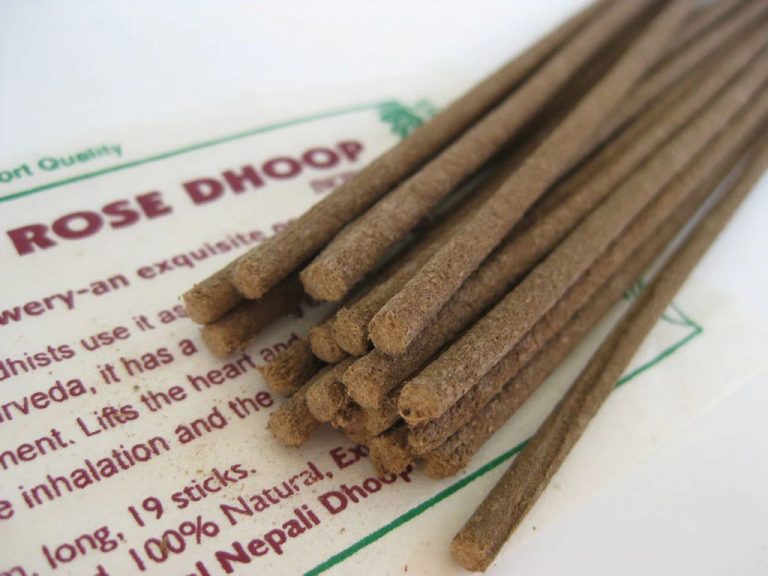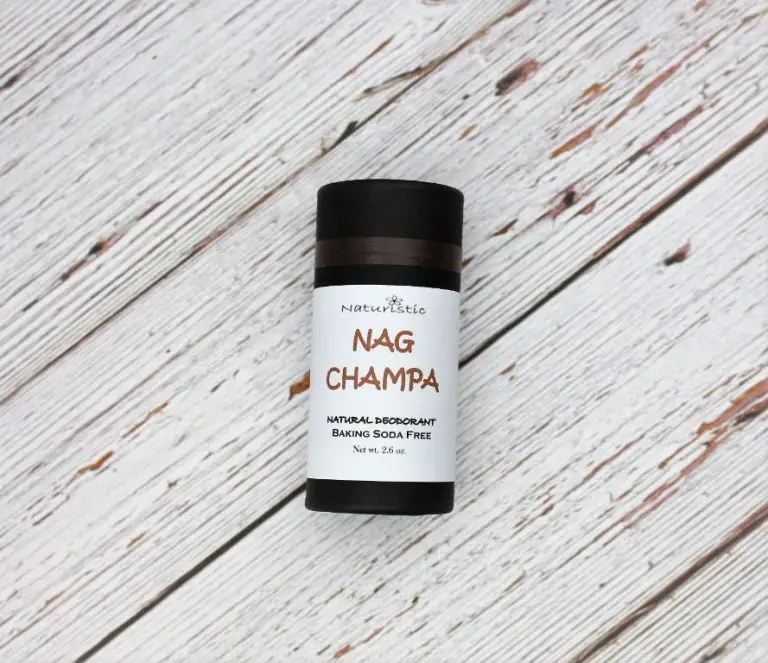Is Almond An Attractive Scent?
Almond is known for its sweet, marzipan-like scent that evokes a sense of warmth and comfort. It’s a popular fragrance note used in everything from perfumes and lotions to soaps and candles. The popularity of almond scent can be attributed to several factors.
First, almond is widely associated with desserts and baked goods. The smell reminds us of fresh almond croissants, frangipane tarts, and almond cookies. It conjures up delicious memories and feelings of indulgence. Second, almond has a smooth, mellow sweetness that is pleasing without being overpowering. It’s an accessible, easy-to-enjoy scent that appeals to a wide range of people.
Lastly, almond scent has a nostalgic quality. It’s often used in baby products and personal care items, so the fragrance can evoke childhood memories. Overall, the warm, sweet, edible aroma makes almond a universally crowd-pleasing fragrance for perfumes, candles, lotions, and more.
Scent Theory
Scents can have a powerful effect on our mood, emotions, and behavior. Certain smells directly stimulate the limbic system, the part of the brain that processes emotion and memory. When we inhale a scent, nerve cells send signals to the limbic system, provoking immediate emotional reactions before we are even conscious of smelling anything. This response is primal and automatic. Smells activate the amygdala and hippocampus in the limbic system, triggering vivid memories and associated emotions from our past experiences and reactions related to that particular odor.
Aromatherapy uses scented oils and aromas to promote emotional wellbeing and affect mood, stress levels, and even behaviors. For example, the scent of lavender can induce feelings of calm and relaxation. Peppermint may boost energy and alertness. Eucalyptus can help clear sinuses and the mind. Certain scents may curb appetite or aggression. Much is still unknown about the precise neuroscience behind how smell elicits emotional and physiological responses. However, it is clear that scents can strongly influence our mood, mindset, memories, behaviors, and physiology.
Almond Scent
The distinctive scent of almonds comes from the essential oils and aromatic compounds they contain. When an almond is cracked open, the scent is released into the air. The primary aromatic compounds that give almonds their pleasant nutty aroma are:
– Benzaldehyde – This aromatic organic compound provides almonds with their dominant almond/cherry-like scent. It is the key contributor to the distinctive almond fragrance.
– Acetophenone – This compound has a sweet aroma resembling that of oranges and cloves. It provides an extra layer of sweetness to the almond scent.
– Anisaldehyde – Adds a floral, anise-like scent note to almonds. It provides a subtle background fragrance.
– Gamma-Decalactone – Contributes a creamy, peach-like aroma to almonds. Rounds out the overall scent profile.
The precise combination and concentrations of these aromatic compounds give almonds their unique, pleasing smell that is widely recognized. When smelled, almonds are easily distinguished from other nuts and foods by their distinctive fragrance signature.
Gender Differences
Research suggests there are some key differences between how men and women perceive and react to the scent of almond. While both genders tend to have positive associations with almond, studies indicate women have a stronger affinity for the aroma compared to men.
One study published in the journal Chemosensory Perception examined how men and women emotionally responded to the scents of almond and strawberry. The female participants rated the smell of almond as significantly more pleasant than the male participants did. Women also associated the almond scent with higher feelings of wellbeing.
Scientists theorize this gender difference may come down to conditioning. Almond fragrance is commonly used in women’s perfumes, lotions, and other beauty products marketed towards females. Through repeated exposure to almond-scented cosmetics, women likely develop a fondness for the smell.
The naturally sweet, nutty aroma of almond aligns with scent preferences commonly seen in women. Food and beverage studies indicate females have a greater liking for sugary tastes compared to males. The almond scent may appeal to this penchant for sweetness.
For men, the almond fragrance may not have the same nostalgic associations as it does for many women. However, research shows most males still perceive the smell as pleasant. They rate it as more favorable than other nutty, woody, or spicy scents.
Cultural Differences
There are clear variations in almond scent preferences across different cultures and regions around the world. This is influenced by a number of factors:
In Western cultures, particularly in Europe and the United States, almond scents are widely considered pleasant and alluring. Almond oil and extracts are common ingredients in perfumes, lotions, and candles marketed to Western consumers.
However, in parts of Asia, the Middle East, and Africa, almonds and almond-scented products are less universally preferred. There are certainly many individuals in these regions who enjoy almond fragrances, but they have not permeated the culture to the same degree as in the West.
Interestingly, there seems to be greater fondness for almond scents in cooler, drier climates rather than tropical regions. This may be because the sweet, nutty aroma evokes warmth and richness more so than light, bright scents like citrus.
Traditional cuisines also influence scent preferences – almond is used extensively in European baking, French pastries, and South Asian dishes. Exposure to almond as an ingredient leads to positive associations with its fragrance.
Overall, personal experience, cultural traditions, and regional climate all contribute to whether almond is considered an attractive scent worldwide or more limited in its appeal.
Health Benefits
The almond scent is often touted for its soothing and relaxing properties. Studies have shown that the compounds that give almond its distinctive odor can reduce anxiety and stress levels when inhaled. The scent triggers associations with baked goods and comfort foods, which has a nostalgic, feel-good effect.
Specifically, the compound benzaldehyde is thought to stimulate the brain’s limbic system, which controls emotions and memory. Inhaling almond fragrance can lower heart rate and blood pressure, alleviating symptoms of depression and anxiety. Using almond oil or scented lotions can also improve mood and invoke positive emotions.
Beyond mental health benefits, almond scent may also bolster the immune system. Research indicates the antioxidant and anti-inflammatory properties in almond fragrance can combat the effects of oxidative stress at a cellular level. This may help the body fight infection and heal faster.
Additionally, studies show exposure to almond scent can improve sleep quality, making it easier to fall and stay asleep. The calming properties help relax the body and quiet the mind before bed. Using almond aroma therapeutically can be an effective, natural way to address insomnia.
Commercial Uses
Almond scent is widely used commercially in cosmetics, perfumes, lotions, soaps, candles, and other consumer products. Its sweet, warm aroma makes it appealing for including in sweet-smelling products. Here are some of the ways almond fragrance is utilized commercially:
Perfumes – Almond is a popular note in perfumes, used to add a feminine, sweet nuance. It blends well with floral notes like jasmine and rose. Many women’s perfumes contain almond accords.
Lotions – Almond oil is used in many lotions, creams and moisturizers. The scent provides a pleasant aroma while helping to hydrate the skin. Brands like The Body Shop have almond scented body butters.
Soaps – Almond is commonly used to scent soaps, shower gels and bath products. It smells fresh and clean, leaving skin feeling nourished. Dove, Olay and other brands offer almond milk body washes.
Candles – Soy and wax candles often include almond fragrance for its warm, inviting scent. Yankee Candle and other brands have candles in Sweet Almond scent.
Food Extracts – Almond extract is used to flavor many baked goods, ice creams, coffee drinks and more. The aroma evokes a sense of sweetness.
Aromatherapy – Sweet almond oil is used in aromatherapy for its pleasant fragrance and skin benefits. The aroma induces relaxation.
DIY Almond Scents
Making your own almond scented products at home is easy and fun. Here are some ideas to get you started:
Almond Soap: Grate a bar of unscented soap and place in a double boiler to melt. Add 15-20 drops of almond fragrance or essential oil and stir well. Pour into silicone molds and let harden before using.
Almond Candles: Use an old glass jar or votive holder. Add wax flakes, let melt, then stir in almond essential oil to scent. Add a wick, let cool and trim wick before lighting.
Almond Sugar Scrub: Mix 1 cup of brown sugar with 1⁄4 cup almond oil and 10-15 drops almond extract. Store in an airtight jar and use to exfoliate skin while bathing.
Almond Air Freshener: Simmer 2 cups water with 1 tsp almond extract in a pot. Turn off heat and add to spray bottle when cooled. Mist as an air freshener.
Be creative and make your own signature almond scented products! Almond’s sweet, nutty aroma makes it a versatile scent for home crafts.
When to Avoid Almond Scent
While almond scent has many positive associations, there are some contexts in which it may not be the best choice:
– People with nut allergies may want to avoid almond-scented products, as the scent can trigger reactions.
– In some cultures, bitter almond scent is associated with cyanide poisoning, so it may have negative connotations.
– Almond’s sweet, edible scent may seem out of place or unprofessional in certain corporate settings.
– As an aphrodisiac, almond scent may be seen as too sensual or inappropriate around children or in religious/spiritual settings.
– The scent is quite sweet and strong, so almond-scented products should be used in moderation to avoid becoming overpowering or cloying.
– Those who simply don’t enjoy the smell of almonds will want to avoid being around the fragrance.
Being mindful of these potential drawbacks can help determine if almond fragrance is suited for a given situation and audience.
Is Almond an Attractive Scent? – Conclusion
In conclusion, almond is considered an attractive scent by many people, but reactions to it can vary based on gender, culture, context, and personal preference.
Key points we covered:
- Almond activates the amygdala, inducing feelings of comfort and relaxation.
- Women tend to rate almond as more attractive than men do.
- Almond is popular in baked goods and cosmetics for its sweet, nutty aroma.
- Some associate almond with sensuality, while others find it reminds them of marzipan or medicine.
- Almond oil has nourishing properties for skin and hair.
- Almond extract is used to scent everything from hand lotions to cleaning products.
While almond may not appeal to everyone, its versatility and nostalgic scent make it a generally attractive option across many products and preferences. The scent evokes feelings of comfort and quality. With careful use, almond scent can elevate an experience. However, it is always wise to consider personal sensitivities and avoid overuse.





